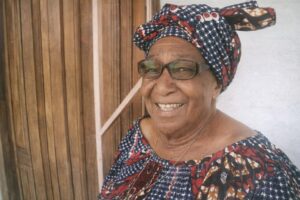Brazzaville market decorum under spotlight
In the southern borough of Bacongo, the Total bus stop funnels commuters into a dense maze of makeshift stalls where lotions, spices and phone chargers vie for attention. Amid this bustle, one cosmetics kiosk has ignited discreet conversations about public morals.
Laminated posters on the kiosk’s plywood walls depict voluptuous silhouettes and explicit scenes advertising buttock-enhancing creams, aphrodisiac syrups and pain-relief balms. The imagery, visible from the pavement, catches the eye of schoolchildren, shoppers and police patrols alike.
Local media outlets such as Les Dépêches de Brazzaville have occasionally noted similar visual marketing in other city markets, yet the Bacongo display stands out for its boldness and the endurance of its placement despite intermittent inspections by municipal agents.
The legal framework governing public morals
Congolese legislation prohibits the public dissemination of material judged obscene or harmful to minors, aligning with Article 174 of the Penal Code and the country’s 2001 law on child protection. Enforcement rests with the National Police and the Ministry of Communication.
In practice, officers prioritise traffic safety, unlicensed hawking and counterfeit pharmaceuticals, leaving moral advertising infractions lower on their list. A senior official, requesting anonymity, notes that limited staff and budget constraints make sustained monitoring of every stall “operationally unrealistic”.
Nevertheless the Ministry launched a 2022 public-awareness campaign, Les Marchés Exemplaires, highlighting hygiene, tax compliance and respect for cultural values. According to the campaign’s mid-term report, ninety-four stalls across Brazzaville have since removed or moderated sexually explicit posters.
Judicial precedents exist. In 2019, a Pointe-Noire vendor received a suspended sentence for screening adult videos on a television visible from the street, a case widely reported by Radio Congo as evidence that courts uphold modesty statutes when file submissions are properly assembled.
Street economy, health claims, and consumer demand
The Bacongo vendor insists his images simply translate product benefits for a multilingual clientele. He argues that textual labels in French, Lingala and Kituba are too small to read from the sidewalk, whereas photographs “speak directly to body concerns” of potential buyers.
Demand is palpable. Research by the University of Brazzaville’s Faculty of Pharmacy shows sales of herbal aphrodisiacs rose fifteen percent nationwide in 2023, driven by social-media influence and cross-border trade with Cameroon and Gabon, where similar products flourish.
Health authorities caution that unregulated potions may interact with cardiovascular medicines or contain hidden steroids. The National Laboratory is running spot tests, and findings are shared through weekly radio segments hosted by Dr. Justine Oba, fostering informed consumer choices.
Community voices on market visuals
Parents interviewed on site express unease. “My eight-year-old now asks why that lady’s clothes are missing,” says Mireille, a bank clerk. She favours dialogue over punishment, suggesting that market committees could provide discrete packaging alternatives without penalising small entrepreneurs.
Other vendors view the explicit signage as unfair competition. A spice seller notes that provocative photos draw crowds who might otherwise browse neighbouring stands. Market association president Jean-Paul Mabiala plans to mediate, citing the need to “balance free enterprise and collective dignity”.
Police patrols contacted for this article maintain that any formal complaint would trigger action. Lieutenant Roland Ndinga emphasises that patrol teams must witness an infraction and receive a written statement from affected citizens before seizing goods or issuing fines, in line with due process.
Regional and global lenses on obscenity regulation
Across Central Africa, public-decency statutes vary. Gabon levies on-the-spot fines for pornographic billboards. Cameroon’s 2018 E-Commerce Act targets online sales of sexually explicit items but leaves street markets largely untouched. Congo-Brazzaville thus navigates a middle path between laissez-faire and strict censorship.
Internationally, the United Nations Educational, Scientific and Cultural Organization encourages member states to protect minors from harmful content while safeguarding artistic expression. Legal scholars argue that measured enforcement, public education and vendor engagement often outperform blanket bans in sustaining social cohesion.
Toward a nuanced policy response
Officials at Brazzaville City Hall are drafting updated guidelines that would require sexually suggestive images to be partially obscured behind translucent film, similar to tobacco-display rules used in several European countries. Consultations with vendor unions are scheduled for early summer.
Civil-society groups, including the Collectif des Parents Vigilants, welcome the initiative yet urge sustained follow-up. They recommend adding QR codes on packaging linking to medically vetted information, thereby addressing health misinformation without undermining lawful commerce.
Whether Bacongo’s kiosk becomes a pilot case or a footnote will depend on coordinated action between merchants, residents and authorities. For now the neon creams remain on display, reflecting both the vibrancy of Congo’s informal economy and the evolving debate over public decency.
As Brazzaville prepares to host the Pan-African Music Festival next year, municipal planners see the forthcoming cultural influx as an opportunity to pilot clearer signage standards. Success, they say, would showcase Congo’s commitment to family-friendly public spaces and dynamic economic vibrancy without stifling entrepreneurial creativity.






















